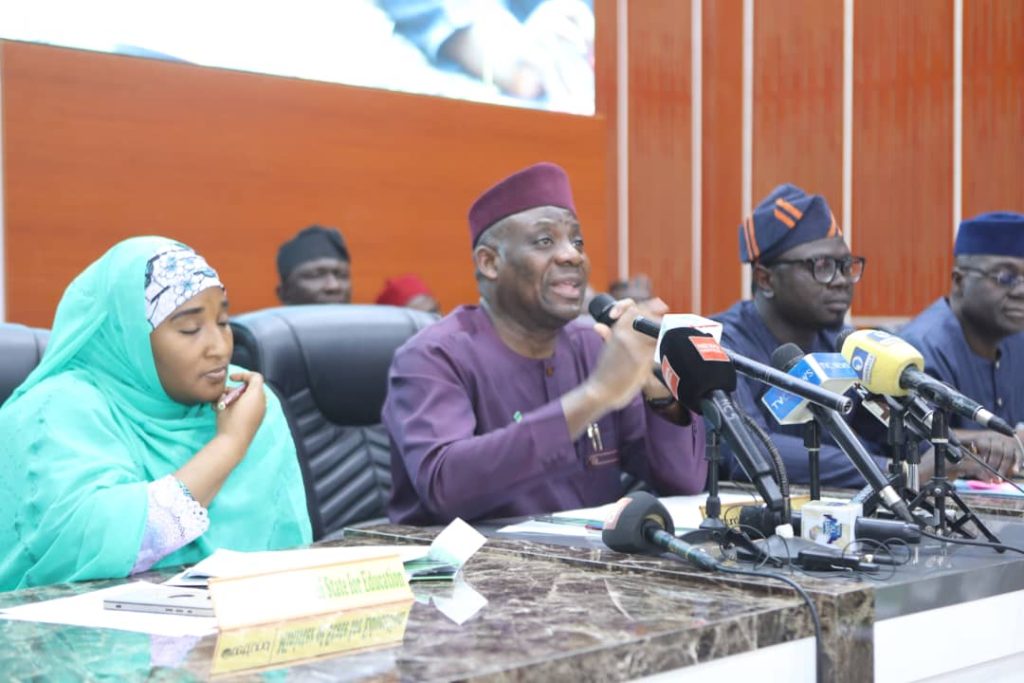In a major step toward repositioning technical education as a catalyst for economic transformation, the Minister of Education, Dr. Maruf Olatunji Alausa and the Minister of State for Education, Professor Suwaiba Said Ahmad, have officially launched Nigeria’s Technical and Vocational Education and Training (TVET) initiative.
Themed “Advancing Skills and Empowering the Future”, the launch event marked a pivotal moment in the Federal Government’s strategic efforts to equip millions of young Nigerians with practical, industry-relevant skills to drive national development.
Federal Government Rolls Out TVET Program to Equip Nigerians
Speaking at the event, Dr. Alausa underscored the government’s renewed focus on youth empowerment through a coordinated and inclusive TVET framework.
“Our greatest resource is not beneath the ground,” he declared. “It is the energy, creativity, and talent of our people.”
With over 70% of Nigeria’s population under the age of 30, Dr. Alausa stressed the urgency of converting demographic potential into productive capacity.
The reformed TVET initiative is structured around **three flagship programmes
Master – 6-months (open to all NIN holders)
Master 12– 1 year (open to all NIN holders)
Technical College Track – 3 years (for individuals aged 13–20)
Each programme is 80% practical and 20% theoretical, with training scheduled to begin in August 2025 across Vocational Enterprise Institutes (VEIs), Skills Training Centres (STCs), and Federal/State Technical Colleges.
A total of 25 skill areas will be offered nationwide. Key components of the initiative include.
Standardised skills certification (NSQ) via NABTEB and Sectoral Awarding Bodies
Free education at public technical schools
Monthly stipends of ₦22,500 for trainees
Access to starter packs and low-interest loans for entrepreneurship
A goal to train five million skilled youth by 2030
Industry-aligned, demand-driven training areas
Stakeholder-led implementation with strong monitoring and evaluation systems
Digital skills acceleration and institutional incentives
“Our goal is not merely to produce certified graduates but to build a skilled workforce ready to power our industries,” Dr. Alausa stated, calling on all sectors—public and private—to take ownership of this transformative vision.
Minister Advocates for Sustainable Educational Programs, TVET
In her remarks, Professor Ahmad described the launch as a **“milestone in our shared journey to revitalise education and unlock national potential.”
She highlighted the initiative’s alignment with the Renewed Hope Agenda of President Bola Ahmed Tinubu and affirmed the administration’s commitment to inclusive education.
She also previewed the upcoming Luminah 2030 programme, which will empower one million mothers and girls with life-changing skills.
“Let me blow our trumpet just a little—after all, even a chalkboard needs someone to write on it,” she said lightheartedly.
Mr. Abel Olumiyiwa Enitan, Permanent Secretary, FME, praised the Ministers for their collaborative leadership, calling the initiative “carefully designed to align with modern economic transformation strategies.”
Ministers from other sectors, including Comrade Ayodeji Olawande (Youth Development) and Mr. Muhammadu Maigari Dingyadi, representing the Minister (Labour and Employment), echoed strong support for the programme and its focus on job creation.
Professor Idris Bugaje, Executive Secretary of the National Board for Technical Education (NBTE), also emphasised the role of the Nigerian Skills Qualifications Framework (NSQF) in linking TVET standards with industry needs.
During an interactive session, concerns about access for rural communities and vulnerable populations were addressed, with assurances of a data-driven, inclusive implementation strategy to ensure no one is left behind.
The event concluded with a unified commitment from all stakeholders to harness education as a powerful engine for economic growth and national renewal.





